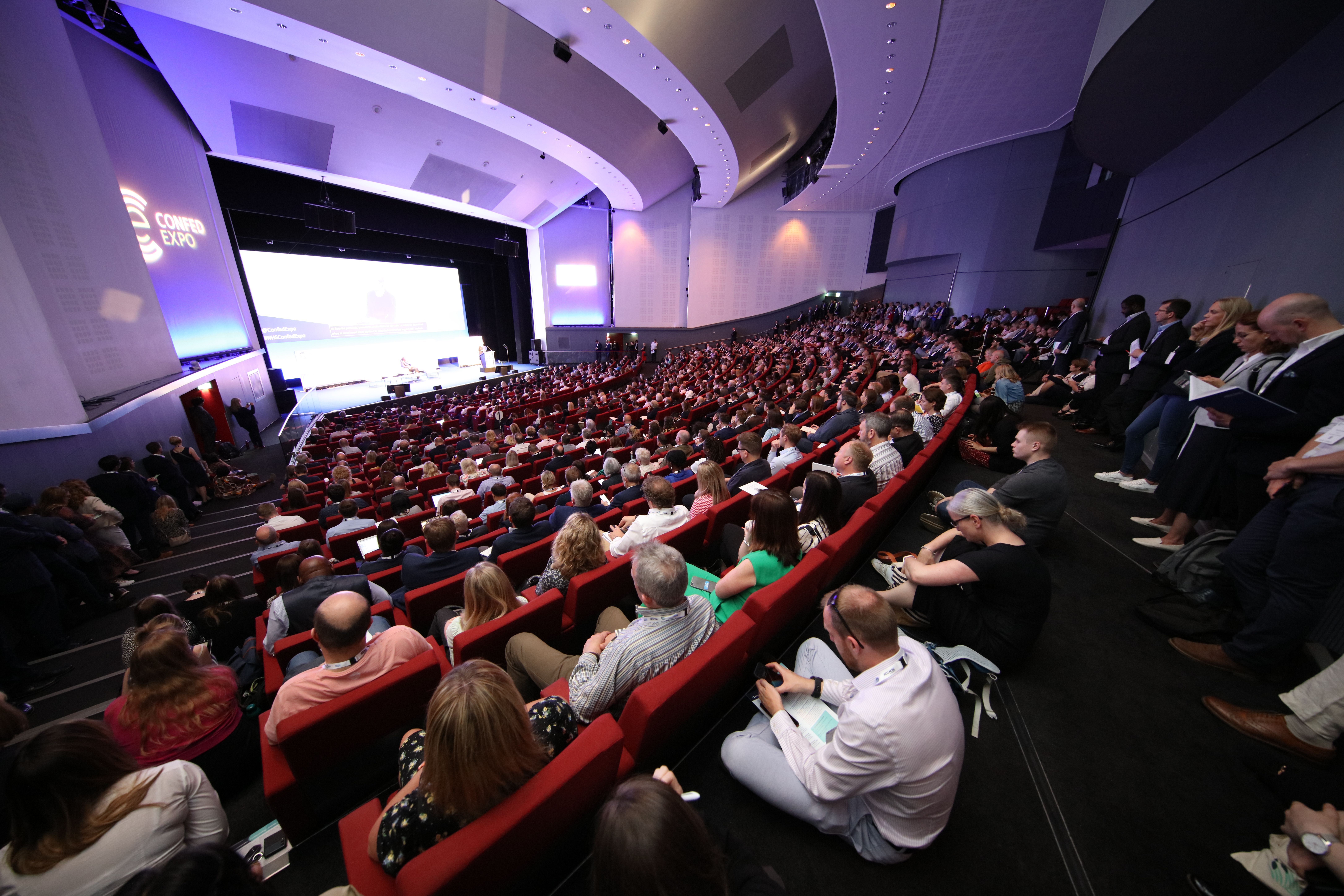Top picks with Rory Deighton
Why do you think NHS ConfedExpo is an important event for your networks?
Our members talk a lot about headroom and headspace. The need for headroom to work in, and the need for headspace to focus on improvement, service redesign, and looking after our teams. NHS ConfedExpo gives you space in which to learn, listen, think, and come back refreshed and inspired.
Looking at the programme, what are you most looking forward to, and why?
I know I should say the main stage speakers, but it’s the conversations you have with members, exhibitors and colleagues that are always the most valuable for me. Each year, I return to work with a notebook full of people to follow up with, and new ideas to better understand. I am also looking forward to:
Tackling the elective backlog: redesigning pathways: if anyone can show new insights and methods to achieve improved elective recovery its likely to be Sarah-Jane Marsh and Matthew Kershaw.
Thriving in adversity: igniting change: at a time when we all understand the need for service transformation, while the service is looking after record numbers of patients, I’m interested in hearing from Sir William Atkinson, former headteacher of Phoenix High School and leadership consultant, about his experience in inspiring teams and overcoming adversity.
Valuing patient time (Last 1,000 days): I’m also interested in the Valuing patient time (Last 1,000 days) session and the impact that thinking differently can have on how patients journey through healthcare flow. This change in culture, resulting in a changed relationship between patients and the NHS, is something I think we’ll see a lot at NHS ConfedExpo this year.
Are there any other sessions you would like to highlight?
Powering systems from within: collaboration for better outcomes : we welcome the collaborative and honest approach to UEC strategy Sarah-Jane Marsh has led, and in the UEC programme’s keenness to listen and learn.
Supporting neurodivergent children in their communities: with demand for services increasing, children and young people are experiencing longer waiting times for assessment and treatment so this is a key area of improvement.
Primary and secondary care interface: as demands continue to increase for both primary and secondary care, teams are making a difference by working together on shared issues and improving patients’ experiences of moving between the two.
Key ingredients for successful home alternatives to ward-based care: this is a key future model of care for people with long term conditions, and this session will focus on how to ensure our ways of working result in great care for the people we look after.
The economic benefits of the shift to proactive care: I’m a huge fan of the work that Andy Hardy and Kiran Patel have led in Coventry and Warwickshire. Shifting the way that we talk about ‘health value’ - the economic growth that is created by investment in healthcare – is something that they have described and applied in really interesting ways.
You can view the agenda here and you can also follow Rory Deighton on X.

Rory Deighton
Director, Acute and Community Networks




